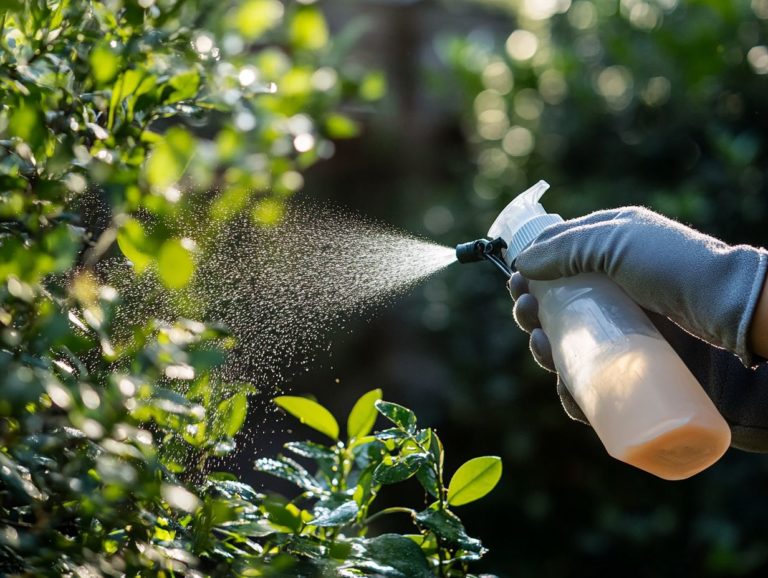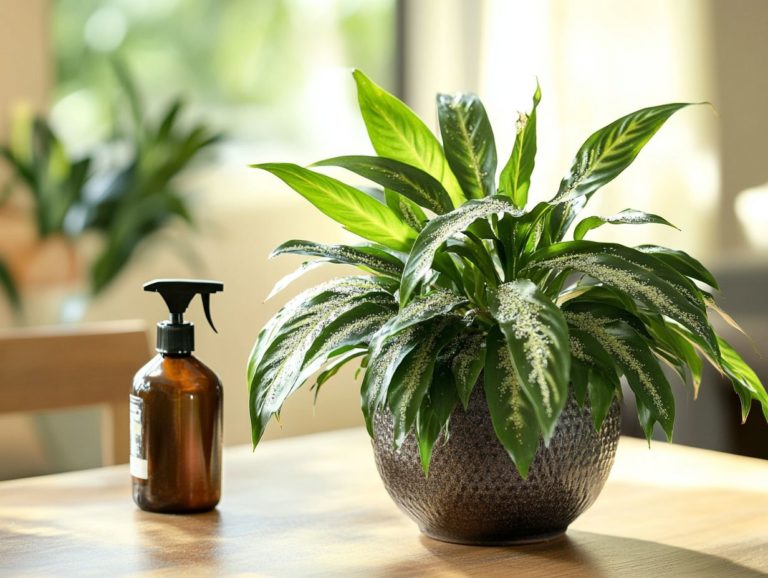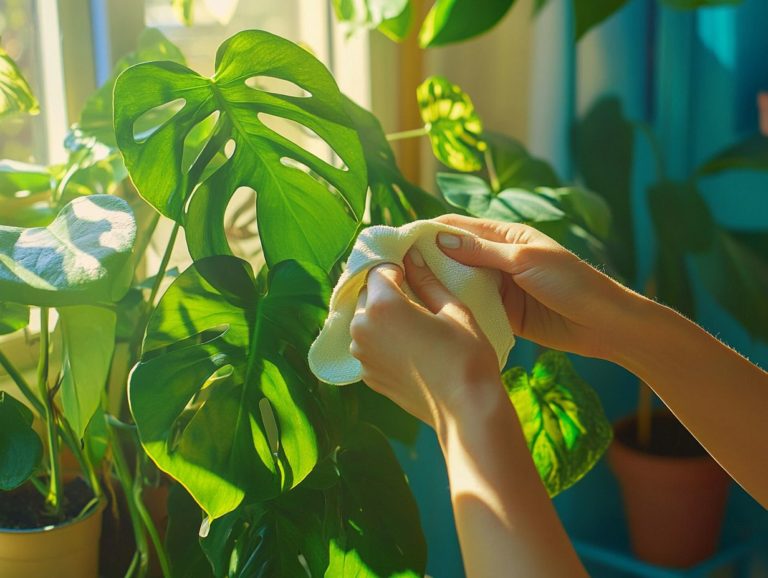Top 5 At-Home Pest Control Solutions
Dealing with pests in your home can be incredibly frustrating, but you don t have to reach for the phone to call the professionals just yet.
This guide presents five effective at-home pest control solutions, ranging from thorough cleaning and decluttering to using natural repellents. It delves into the common household pests you might encounter, helping you identify them and weigh the benefits and risks of Do It Yourself methods.
With a collection of preventative tips and clear guidance on when it s time to bring in the pros, get ready to tackle any pest problem with confidence!
Contents
- Key Takeaways:
- 1. Clean and Declutter Your Home
- 2. Use Natural Repellents
- 3. Seal Entry Points
- 4. Set Traps
- 5. Call a Professional
- What Are the Most Common Household Pests and How to Identify Them?
- Frequently Asked Questions
- 1. What are the top 5 at-home pest control solutions?
- 2. Are insecticides safe to use as a pest control method?
- 3. Can I use natural repellents for pest control?
- 4. How can I prevent pests from entering my home?
- 5. Are there any DIY pest control solutions I can try?
- 6. How often should I perform pest control measures at home?
Key Takeaways:

- Regular cleaning and decluttering can prevent common household pests from entering your home and help you manage your pest control plan.
- Natural repellents, such as peppermint oil and vinegar, can effectively deter pests without harmful chemicals.
- Sealing entry points, such as cracks and gaps, can prevent pests from entering your home and causing pest problems.
1. Clean and Declutter Your Home
Cleaning and decluttering your home is a vital step in achieving effective pest control. Not only does it create a more enjoyable living environment, but it also significantly lowers the risk of pest problems by removing hiding spots and food sources for common household nuisances like insects and rodents.
Keeping your space tidy aligns beautifully with your household budget, helping to prevent those costly pest treatments and the need for ongoing pest control services down the line.
Taking a proactive stance by regularly organizing storage areas, such as closets and attics, can be incredibly effective in keeping unwanted guests at bay. Wiping down surfaces to eliminate crumbs and spills is essential; even the tiniest morsels can attract pests.
Promptly disposing of food waste and ensuring that trash bins are securely sealed can work wonders in deterring infestations. Establishing a consistent cleaning routine not only promotes a healthier home but also reduces your reliance on professional pest control methods.
This provides a sustainable approach to maintaining a pest-free living space and minimizing the costs associated with pest control subscriptions.
2. Use Natural Repellents
Using natural repellents, such as essential oils, presents an effective and eco-friendly approach to pest control. This method offers a safe alternative that employs low-risk ingredients to deter pests without exposing your family to harmful chemicals commonly found in commercial pest control products.
Among the most popular options are lemongrass oil and cedar oil. Not only do these oils possess strong fragrances that repel unwanted insects, but they also bring added benefits for various household applications.
For instance, you can easily whip up a DIY repellent by diluting a few drops of lemongrass oil in water. This mixture can then be sprayed around windows and doorways to keep bugs at bay. Cedar oil, on the other hand, can be used in a diffuser or combined with water and vinegar to create a potent spray that not only repels pests but also leaves behind a pleasant aroma.
These homemade alternatives allow you to manage pests effectively while being gentle on both the environment and your family, showcasing the benefits of natural pest control.
3. Seal Entry Points
Sealing entry points in your home is an essential pest control strategy that can significantly enhance your pest prevention efforts. By blocking access to common household pests, you can effectively prevent potential infestations that may lead to costly pest control treatments.
To identify gaps, cracks, and holes, conduct a thorough inspection of both the interior and exterior of your home. Pay special attention to window frames, doorways, and areas where pipes or wires enter the building.
Using insulation foam a type of foam used to fill gaps caulk, or weather stripping provides effective sealing solutions. Regular inspections are crucial, allowing you to proactively address any new vulnerabilities that may arise over time.
By maintaining these barriers, adapting your pest control strategies becomes simpler, ensuring a healthier, pest-free living environment for you and your family.
Start your pest control journey today! Follow these steps and keep your home safe.
4. Set Traps

Setting traps is a highly effective and straightforward method for pest control in your home. This approach allows you to monitor and manage pest populations with ease.
Often, traps prove to be a more cost-effective solution compared to hiring professional pest control services.
Among the various traps available, glue traps and bait stations are particularly user-friendly options. Glue traps entice pests onto a sticky surface, sticking them in place upon contact. Meanwhile, bait stations are containers that hold poison to lure and kill specific pests while minimizing risk to non-target animals.
When setting up these traps, position them in areas frequently traveled by pests, such as near walls or entry points. Check your traps regularly. This ensures they work well. Remember, trapping can be a vital component of your overall pest management strategy.
5. Call a Professional
Calling in a professional pest control service is essential when you’re faced with persistent infestations that DIY methods can’t handle. Pest control experts bring specialized knowledge and tools to effectively tackle complex pest issues while preventing future incursions.
Recognizing the signs of severe infestations like droppings, visible damage, or an alarming number of unwanted critters can transform a manageable problem into a full-on crisis. When you find yourself in this situation, professional intervention is crucial.
Pest control specialists also provide ongoing monitoring and tailored treatments designed for specific infestations. Take the time to compare pest control companies; it can make all the difference, as each may offer different services, from organic solutions to emergency treatments.
Ultimately, investing in professional pest control not only resolves your immediate issues but also grants you long-term peace of mind, especially when utilizing pest control services.
What Are the Most Common Household Pests and How to Identify Them?
Identifying the most common household pests is essential for effective pest control. By understanding their behaviors, characteristics, and signs of infestation, you can take proactive measures to prevent and manage pest issues before they escalate.
Take ants, for instance; they often parade through your kitchen in search of food, leaving behind chemical signals that help them find food. Then there are roaches, those nocturnal creatures that love dark, damp spots, making their presence known with droppings and shed skins. Mice, equally elusive, tend to nest in hidden spaces, leaving behind gnaw marks and droppings as clues to their activities.
Recognizing these early signs is vital; timely intervention can save you from extensive damage and health risks. Implementing traps, sealing entry points, and maintaining cleanliness are effective strategies to manage these unwelcome visitors. Act now to prevent pests from becoming a serious threat to your home!
What Are the Benefits of Using At-Home Pest Control Solutions?
Utilizing at-home pest control solutions offers you a wealth of advantages, including significant cost savings, unmatched convenience, and the ability to customize your pest management methods to suit your household s unique needs. It s an appealing option for many homeowners looking for effective ways to manage pesky intruders.
This approach not only makes pest control more accessible for those eager to take charge of their home environment but also encourages the use of natural products, thereby reducing reliance on harmful chemicals commonly found in commercial options. Embracing DIY pest control empowers you, instilling confidence in your ability to address infestations effectively.
These solutions are easily adaptable to fit within your household budget, allowing you to prioritize your financial resources while maintaining a comfortable living space. Ultimately, this paves the way for sustainable and eco-friendly pest management practices that benefit both you and the environment.
What Are the Potential Risks of DIY Pest Control?
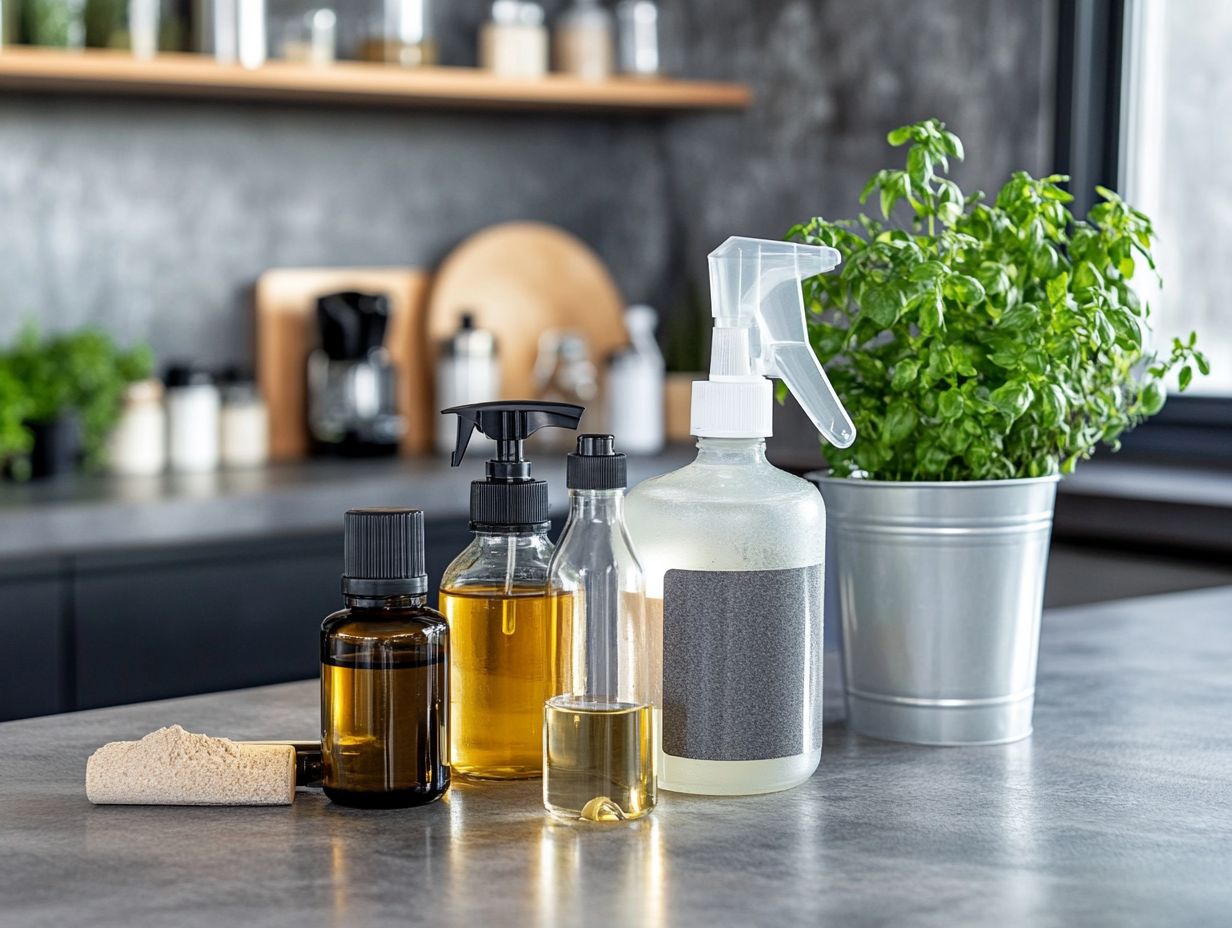
While tackling pest control on your own may seem like a savvy way to save some cash, it comes with its fair share of risks. Think about it: ineffective treatments, the possibility of misapplying chemicals, and the chance of accidentally harming beneficial insects or even your beloved pets.
These challenges often arise when you overlook the subtleties of pest behavior. This oversight can leave you fighting a losing battle against persistent infestations. Without a solid grasp of the many pest control products available, you might end up choosing solutions that not only miss the mark but could also cause pests to develop resistance over time.
Know when it s time to call in the pros for serious pests like termites or bedbugs. In those situations, bringing in professionals ensures that advanced techniques are applied correctly and protects your home environment, making it a far more sensible choice than going the DIY route.
How Can One Prevent Future Pest Infestations?
Preventing future pest infestations requires a thoughtful, multi-faceted approach that integrates effective pest control solutions, regular maintenance, and proactive measures. These strategies minimize the chances of unwelcome guests returning to your home.
To succeed, prioritize regular inspections. Carefully examine both the interior and exterior of your property for telltale signs of pest infestations, like droppings or nests. Maintaining a clean environment by promptly disposing of food waste and ensuring countertops are free of crumbs is crucial in deterring these unwanted visitors.
Seal entry points like cracks or gaps around windows and doors with silicone or other effective materials. This can block potential access routes for common household pests. For example, a strategic combination of traps and baits can effectively manage roaches. Proper storage techniques can also help keep ants at bay. Consider pest control products with active ingredients like pyrethrin (a natural insecticide) and canola oil (which can disrupt pest life cycles).
By implementing these tailored pest control strategies, you can create an environment that pests find unwelcoming, ensuring your home remains a sanctuary.
What Are Some Additional Tips for Effective At-Home Pest Control?
To achieve effective at-home pest control, implement a range of strategies to enhance the effectiveness of pest control products and methods. This maximizes your efforts in maintaining a pest-free environment.
Establishing regular cleaning schedules is a cornerstone of this approach. A clean home significantly diminishes food sources and breeding grounds for pests. Additionally, strategically placing traps in high-traffic areas provides immediate insights into pest activity, enabling timely interventions. Incorporating natural remedies for houseplant pests can also enhance your pest control plan.
Consider leveraging specialized pest control solutions tailored to specific infestations. These products are adept at targeting the unique behaviors and vulnerabilities of various pests. This may include pest control treatments that utilize low-risk ingredients. For effective options, explore the top 5 pest control products for houseplants. Sealing entry points and vigilantly monitoring for signs of pests can further strengthen your efforts to create a sanctuary free from unwanted visitors.
When Is It Necessary to Call a Professional Pest Control Service?
Recognizing when to enlist a professional pest control company is crucial for managing pest issues effectively. Some infestations require specific skills and treatment methods that go beyond standard do-it-yourself strategies.
Severe infestations, such as a colony of termites threatening your home s structural integrity, clearly warrant expert help. Cockroaches can spread disease, so they also require immediate action.
Hazardous pests like wasps or raccoons can jeopardize safety. Engaging pest control experts provides the necessary advice and assistance.
By hiring experienced pest control professionals, you enhance your eradication efforts. Their methods are safe for the environment and your household.
These experts offer invaluable insights and use advanced techniques. This ultimately saves you time and effort while ensuring a comprehensive resolution to pest problems.
Consider pest control subscriptions for hassle-free protection.
Frequently Asked Questions
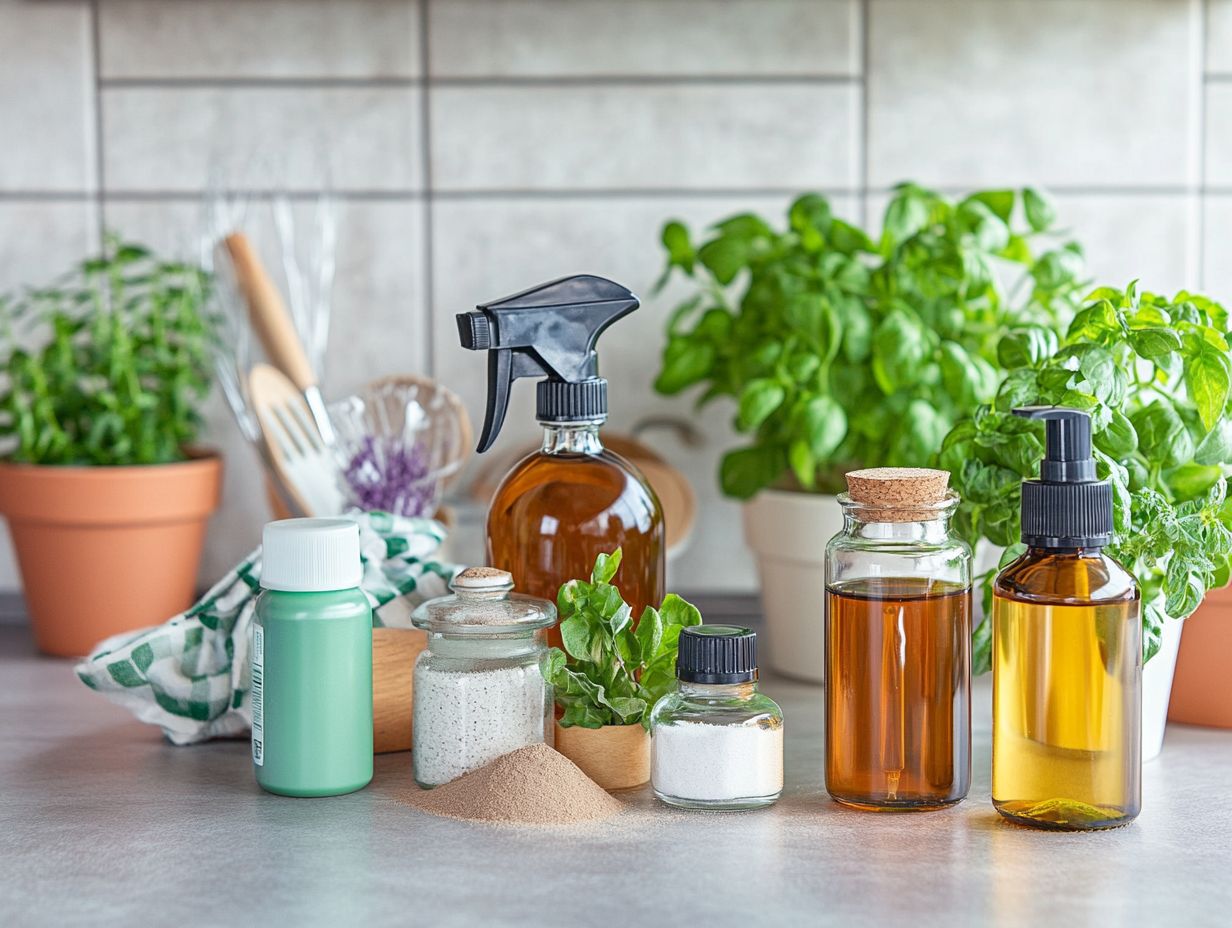
1. What are the top 5 at-home pest control solutions?
The top five at-home pest control solutions are insecticides, sealing entry points, setting traps, using natural methods, and maintaining cleanliness. Check pest control reviews for product effectiveness.
2. Are insecticides safe to use as a pest control method?
Yes, insecticides can be safe and effective when used correctly. Always keep them out of reach of children and pets, and choose products with low-risk ingredients.
3. Can I use natural repellents for pest control?
Yes, natural repellents like peppermint oil and vinegar can repel pests effectively. They are safer around children and pets than chemical insecticides.
4. How can I prevent pests from entering my home?
Seal all entry points, such as cracks in walls and gaps around windows. Consider a pest control plan that includes regular checks and repairs of damaged screens.
5. Are there any DIY pest control solutions I can try?
Yes, you can make homemade insecticides and set up traps. Research effective recipes online, and always follow safety precautions.
6. How often should I perform pest control measures at home?
Perform pest control measures at least once a month to prevent infestations. In cases of severe problems, you may need to act more frequently.

